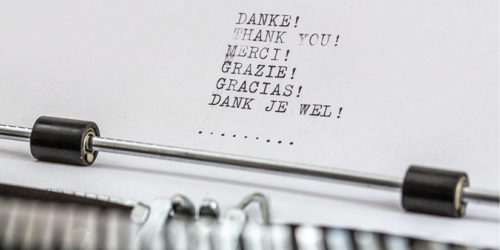English Grammar Day 2024
English Grammar Day 2024 was a wealth of insights for how grammatical choices have a real impact on our lives.
The best book-to-film adaptations
The age-old debate: book versus film. Some argue that a film can only partially capture the depth and nuance of a novel. Others find on-screen adaptations a delightful way to relive their favourite stories. We’re bookworms here. And there’s nothing quite like that feeling of stepping out of the cinema utterly satisfied. This comes from […]
Morphemes: the invisible building blocks of pop-cultural language
Ever wondered how a single word like "un-friend-able" can pack such a punch? Or how "OMG" can express a whole rollercoaster of emotions? The answer lies in the magical world of morphemes, the smallest units of meaning in a language.
The global efforts to preserve endangered languages
Recent findings are sobering: we are losing languages. We are losing linguistic diversity. Unless we take decisive action, these windows into history will close.
New book explores the future of language
Language is the essence of human communication. But what happens when language itself starts to change?
Cambridge Dictionary’s Word of the Year reflects AI’s increasing influence
This year’s ‘Word of the Year’ is reflective of the times. What is it, and what does it say about our language landscape? You’re not hallucinating… The word ‘hallucinate’ is the Cambridge Word of the Year for 2023. This highlights the growing impact of AI on language and society. At first, it may seem strange […]
The changing sounds of Britain: the decline of RP
For most of the 20th century, Received Pronunciation (RP), also known as "BBC English" or "the Queen's English", was the most prestigious accent in Britain. This non-regional accent originated in the upper-middle class of southern England. It was seen as the epitome of refined speech and social standing. Its adoption by the BBC further cemented its standardisation. Why is this no longer the case?
Half of the English language is of French origin
The English language is a fascinating mix of words and phrases from all over the world. While it is primarily a Germanic language, it has been heavily influenced by other languages. Including French. In fact, it is estimated that up to 60% of the English vocabulary is of French origin. This is due to the […]
How journaling can improve your writing skills
Journaling is a great way to express your thoughts and feelings, track your progress, and de-stress. But did you know that journaling can also improve your writing skills? Here are some ways that journaling can help you become a better writer. Practice makes perfect The saying “practice makes perfect” is true for many things, including […]
How did ghost stories become an unlikely tradition?
Telling ghost stories at Christmas time is a tradition originating in Victorian England. How did this come about?
How to read more effectively as a writer
Reading can be very active if you make it so. Gather your post-it notes and let’s explore how we can read to become better writers.
Be Kind to Writers and Editors Month
September is Be Kind to Writers and Editors Month. Here are some reasons why writers and editors deserve appreciation.













